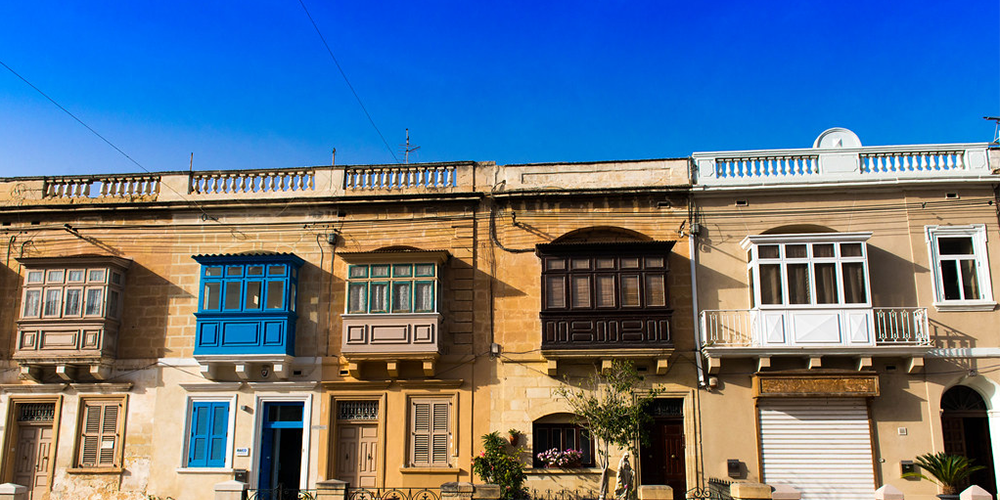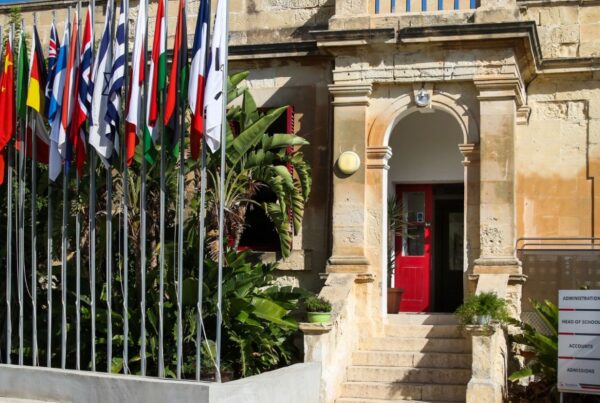 如果您点击这里,此页面将被翻译成中文。
如果您点击这里,此页面将被翻译成中文。
 如果您点击这里,此页面将被翻译成中文。
如果您点击这里,此页面将被翻译成中文。
 如果您点击这里,此页面将被翻译成中文。
如果您点击这里,此页面将被翻译成中文。
 如果您点击这里,此页面将被翻译成中文。
如果您点击这里,此页面将被翻译成中文。
Over 15,000 UK-born residents currently call Malta home.
Malta’s Mediterranean lifestyle, English-speaking environment, and favorable tax and residency schemes make it an ideal choice for those seeking financial efficiency and a higher quality of life. The island offers a warm climate, easy access to the rest of the EU, and robust property investment opportunities, further adding to its popularity.
For UK citizens interested in purchasing property in Malta, the process is straightforward but involves specific conditions, especially post-Brexit. Here’s an overview:
1. Selecting a Property:
Begin by choosing a property, often with the assistance of a local real estate agent.

2. Promise of Sale Agreement:
Initiate the process by signing a Promise of Sale, a preliminary contract binding both the buyer and the seller. Typically, a 10% deposit based on the full asking price is made at this stage.
3. Acquisition of Immovable Property (AIP) Permit:
As UK nationals are now considered third-country nationals post-Brexit, obtaining an AIP permit is necessary unless purchasing in one of Malta’s Special Designated Areas (SDAs).
4. Property Ownership in SDAs:
Third-country nationals can buy multiple properties in SDAs without the need for an AIP permit and rent them out immediately, making them particularly attractive for investors.
5. Property Ownership Outside SDAs:
For properties located outside SDAs, buyers with an AIP permit may only purchase one property, which cannot be rented out.
6. Minimum Property Values:
Malta has set minimum property values for AIP-permitted purchases, currently standing at €143,410 for apartments and €241,701 for villas and townhouses. Costs may vary in the South of Malta and on Gozo.
7. Shell Properties:
If purchasing a shell apartment or property under the required amounts, the sale will be permitted on the condition that after completing it, the property needs to be valued by a registered architect for an amount exceeding the required minimum.
8. Selling Existing Properties:
UK nationals interested in buying additional properties outside of SDA areas need to sell any existing properties first.
Engaging a local notary and legal advisor is recommended to navigate the legal aspects of property purchase in Malta.
In Malta, property acquisition regulations vary based on residency status and citizenship. Here’s an overview:
1. Residency and Citizenship Requirements:
EU Citizens:
- Non-Residents: EU citizens who have not resided continuously in Malta for at least five years require an Acquisition of Immovable Property (AIP) permit to purchase property outside Special Designated Areas (SDAs).
- Residents: EU citizens residing in Malta for over five years can purchase property without an AIP permit.
Non-EU Citizens:
- Non-EU citizens must obtain an AIP permit to acquire property in Malta, regardless of residency status.
2. Property Ownership Limits:
EU Citizens:
- Non-Residents: Limited to purchasing one property outside SDAs, intended for primary residence or holiday use.
- Residents: After five years of continuous residence, EU citizens can buy multiple properties without restrictions.
Non-EU Citizens:
- Permitted to purchase only one property outside SDAs, intended for primary residence.
3. Special Designated Areas (SDAs):
In SDAs, there are no restrictions on property ownership for both EU and non-EU citizens.
4. Business Use and Rentals:
Properties intended for business activities or rental must be specified in the Contract of Purchase.
5. Inheritance:
There are no restrictions on property acquisition through inheritance.
6. Spousal Considerations:
If one spouse is an EU citizen and the other is not, both can benefit from the above conditions if the property is intended as their main residence.
It’s advisable to consult with a local notary or legal advisor to navigate the specific requirements and ensure compliance with Maltese property laws.
After signing the Promise of Sale (Konvenju) in Malta, several steps follow before finalizing the property purchase:
1. Due Diligence and Permits:
Notary’s Role: The notary conducts necessary due diligence to ensure the property’s legal standing and that all parties are in order. This includes verifying ownership, checking for encumbrances, and ensuring compliance with local regulations.
Acquisition of Immovable Property (AIP) Permit: If applicable, the notary applies for the AIP permit, which is required for non-EU citizens purchasing property outside Special Designated Areas (SDAs).
2. Property Preparation:
Planning and Design: While awaiting the final deed, you can plan renovations or interior designs. However, physical alterations should not commence until the property is officially transferred to your name.
Access to Property: You may request permission from the seller to visit the property for measurements or to assess its condition, provided this does not interfere with the seller’s rights.
3. Final Deed of Sale:
Signing the Final Deed: Once all due diligence is completed and permits obtained, both parties sign the Final Deed of Sale. This document officially transfers ownership to you.
Payment: The remaining balance of the purchase price is paid at this stage. The notary ensures that all financial transactions are properly executed.
4. Post-Sale Considerations:
Property Handover: Upon signing the Final Deed, you receive the keys and can take possession of the property.
Registration: The notary registers the property transfer with the Public Registry, finalizing the legal process.
Throughout this process, it’s advisable to consult with your notary to address any questions or concerns, ensuring a smooth transition to property ownership in Malta.
Upon signing the Final Deed of Sale in Malta, you officially become the property’s owner.
At this stage, you’ll be expected to pay the remaining balance of the purchase price, along with several additional costs:
1. Stamp Duty:
Rate: The standard stamp duty rate is 5% of the property’s value. First-time buyers benefit from a government incentive, paying stamp duty only on the portion of the property value exceeding €200,000. For properties in Gozo, the rate is reduced to 2% until the end of 2021.
Payment Schedule: Typically, 1% is paid at the signing of the Promise of Sale (Konvenju), with the remaining 4% due upon signing the Final Deed.
2. Notarial Fees:
Rate: Notarial fees generally range from 1% to 3% of the property’s value. These fees cover the notary’s services, including conducting due diligence and drafting the necessary legal documents.
Payment Schedule: These fees are typically settled at the signing of the Final Deed.
3. Searches and Registration Fees:
Amount: Approximately €600. This covers the costs of title searches and the registration of the property transfer.
Payment Schedule: Paid at the signing of the Final Deed.
4. Acquisition of Immovable Property (AIP) Permit Fee:
Amount: €233, applicable if you’re a non-EU citizen purchasing property outside Special Designated Areas (SDAs).
Payment Schedule: Paid at the signing of the Final Deed.
5. Bank Fees (If Applicable):
Amount: Varies based on the bank and the specifics of your mortgage. This may include processing fees, insurance, and other charges.
Payment Schedule: Settled at the signing of the Final Deed.
6. Agency Fees (If Applicable):
Amount: Typically 5% of the property’s value, plus VAT. These fees are usually borne by the seller but can be negotiated.
Payment Schedule: Paid at the signing of the Final Deed.
7. Additional Considerations:
Ground Rent: If the property is subject to ground rent, ensure you understand the terms and any associated costs.
Insurance: It’s advisable to arrange property insurance effective from the date of signing the Final Deed.
It’s essential to budget for these additional costs, which can total approximately 10% to 20% of the property’s value, depending on the specifics of your purchase.
Consulting with a local notary or legal advisor can provide personalized guidance and ensure a smooth property acquisition process in Malta.
When purchasing property in Malta, it’s essential to understand the associated costs and legal requirements, especially when engaging with real estate agencies and considering purchases through entities other than individuals.
Real Estate Agency Commission Fees:
In Malta, real estate agents typically charge a commission fee of 5% of the property’s sale price, plus VAT. This fee is generally paid by the vendor (seller) upon the successful completion of the sale. As a buyer, you are not responsible for this commission.
Purchasing Property Through Entities Other Than Individuals:
When a property is acquired by an entity such as a company, trust, or partnership, the process and legal implications differ from individual purchases. These transactions often serve commercial, investment, or asset protection purposes and involve unique considerations:
Ownership Structure and Taxation: Entities must adhere to specific regulatory requirements, including the disclosure of beneficial owners and compliance with corporate governance standards. Tax obligations may vary based on the entity’s structure and the property’s use.
Legal Compliance: Entities must ensure compliance with all relevant laws and regulations, which may include obtaining necessary permits and approvals for property acquisition and use.
Energy Performance Certificate (EPC) Requirement:
In Malta, it is a legal requirement to have an Energy Performance Certificate (EPC) when selling or renting out a property. Non-compliance can result in fines and legal complications, making it essential for property owners to obtain and present a valid EPC.
As a buyer, you should ensure that the property has a valid EPC at the time of entering the Final Contract. Without this document, the sale cannot proceed. The EPC provides information on the property’s energy efficiency, helping you make an informed decision.
Understanding these aspects is crucial for a smooth property acquisition process in Malta. Consulting with legal and real estate professionals can provide personalized guidance tailored to your specific situation.









